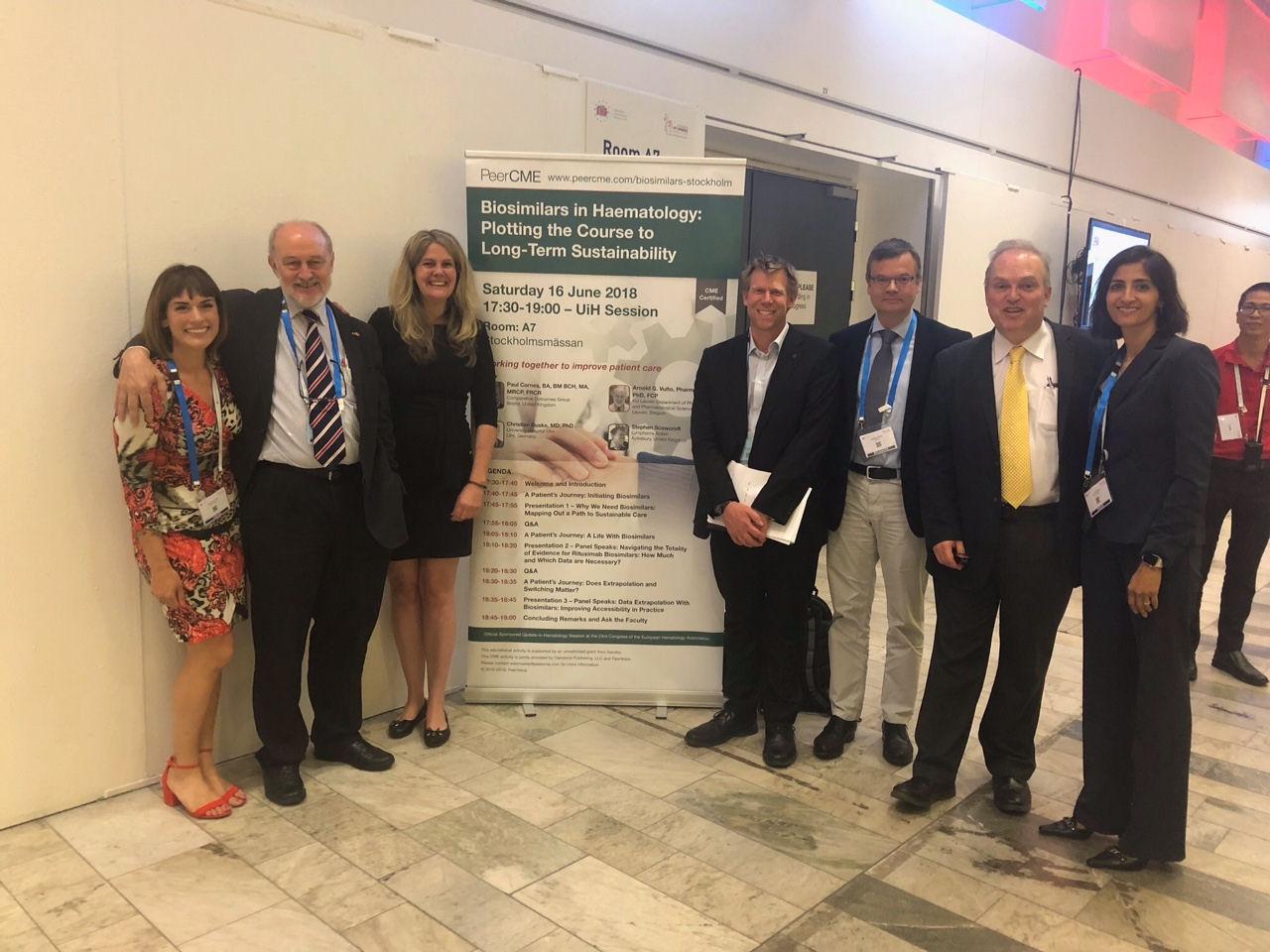Biosimilars in the real world
Published on: 25 June 2018Stephen Scowcroft reports back from a biosimilars panel at the European Haematology Association (EHA) Congress 2018.

Lymphoma Action were invited to participate in a panel discussion at the European Haematology Association (EHA) Congress 2018 in Stockholm, as a direct result of our continued involvement in informing and supporting people affected by lymphoma and the introduction of biosimilars to the NHS.
Since the start of 2017 alternative cheaper biosimilar treatments have been available for rituximab. This will have a positive effect on the long-term sustainability of treatment for lymphoma and supports the NHS drive to continue to support innovative approaches to sustainability.
We first published information about biosimilars in March 2017 as a result of an increased interest in the topic. At the time there were many questions about biosimilars as they became available for use in treatment. We worked directly in partnership with the Cancer Vanguard that was set up to support the introduction of biosimilars into the NHS.
This collaborative approach continues to be highlighted as good practice. More biosimilars are becoming available for other cancer treatment areas and we are regularly invited to speak about our collaboration, so that other organisation can learn from this experience.
The objective of the session at EHA 2018 was to educate haematology healthcare professionals and policy makers on the role of biosimilars in the long-term sustainability of treatment, evaluation of the evidence of rituximab biosimilars and to outline strategies of how to make biosimilars work in the real world. Stephen Scowcroft, Head of Business Development at Lymphoma Action, was on the panel as the patient advocate.
The key messages of the session were that biosimilars are effective, safe and that through a multi-stakeholder approach, with consistent information and messaging, shared decision making and sharing the gains of using biosimilars, a successful take-up of biosimilars within a healthcare system can be made.
A panel discussion was designed to be interactive, to encourage questions and discussion amongst the audience. Over 80 participants were even given the opportunity to vote on particular aspects of the topic.
Feedback shows that many haematology healthcare professionals across Europe do not feel confident about discussing biosimilars with patients as a result of not fully understanding all the relevant information that a patient could question them on. As a result, each of the topics for discussion were introduced by a doctor/patient consultation role play where Stephen played the role of the patient posing searching questions about biosimilars, why they were being used in treatment and what the impact of using them would be.
The session was recorded and is available here to continue to provide certified medical education for haematology healthcare professionals.
